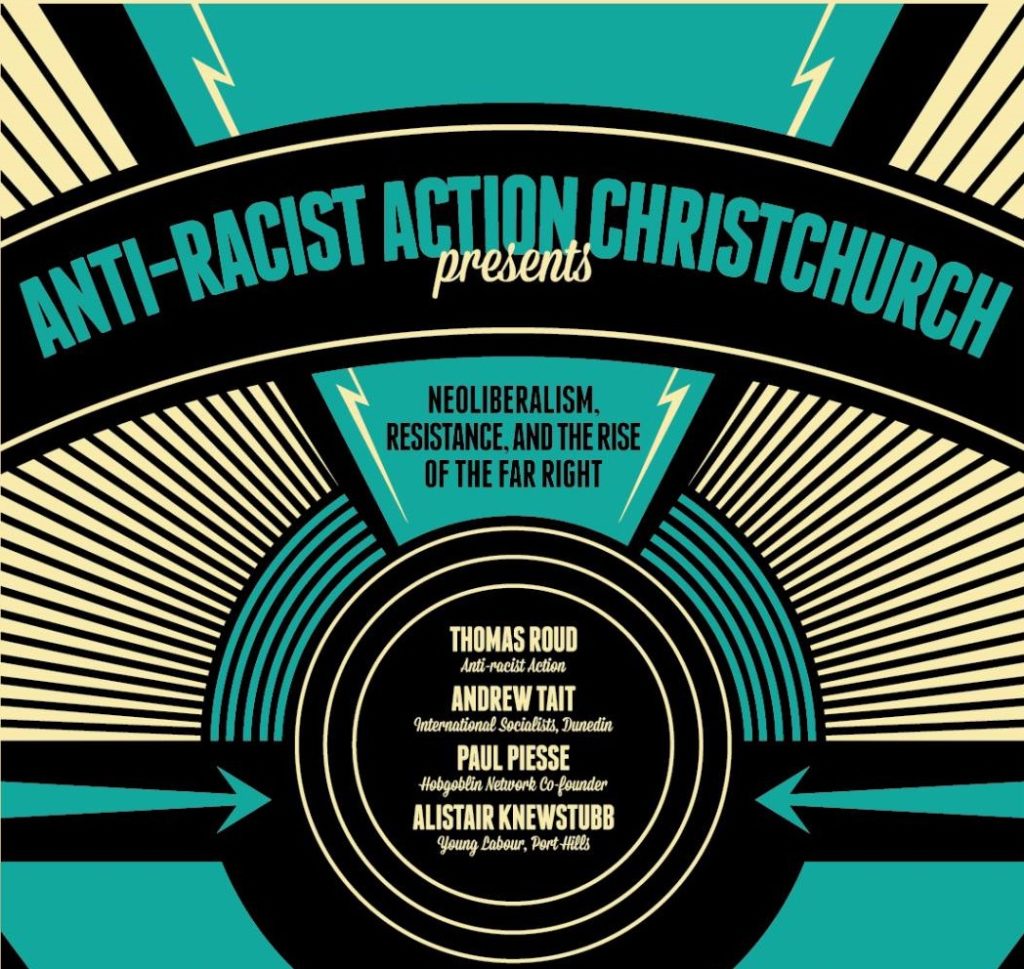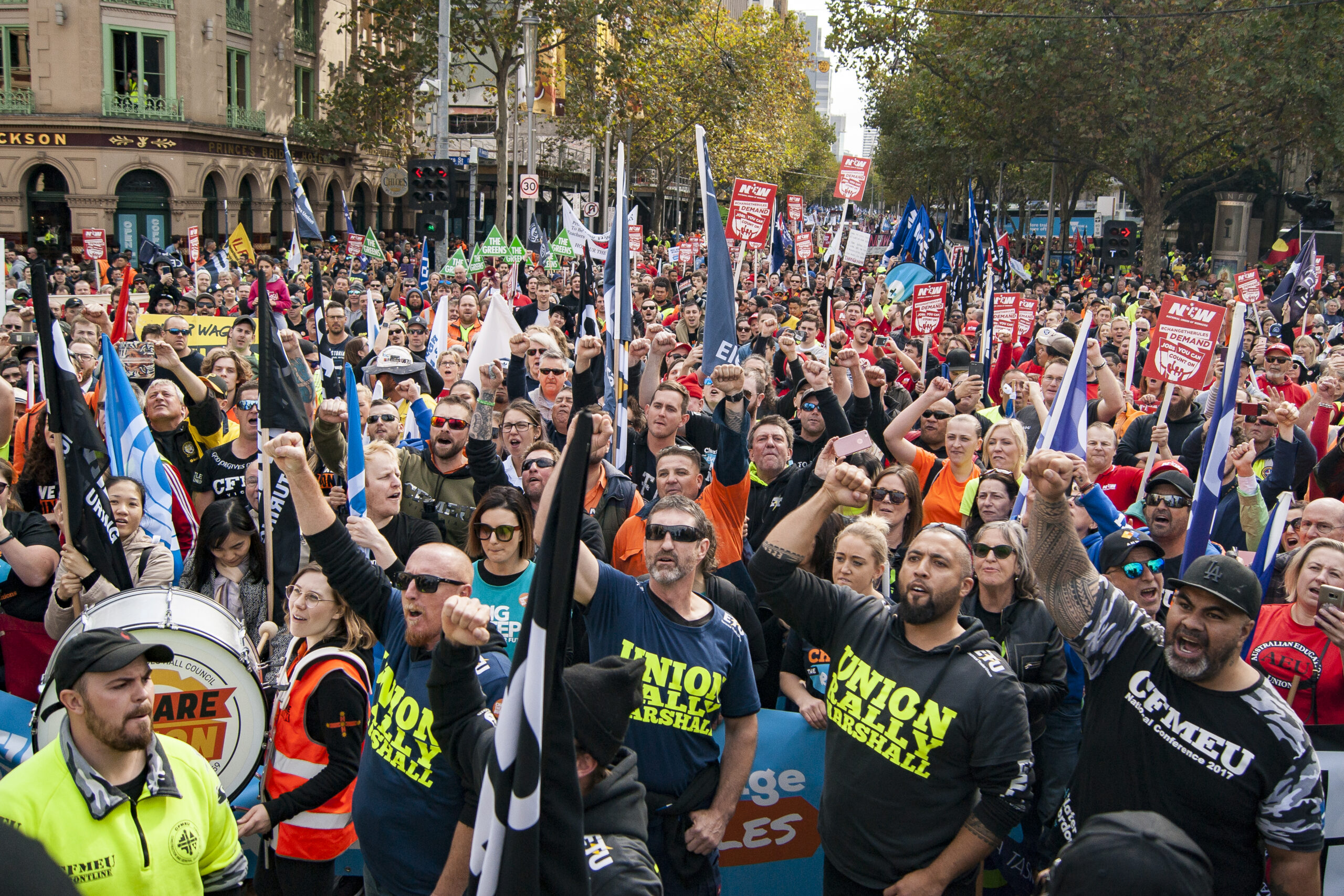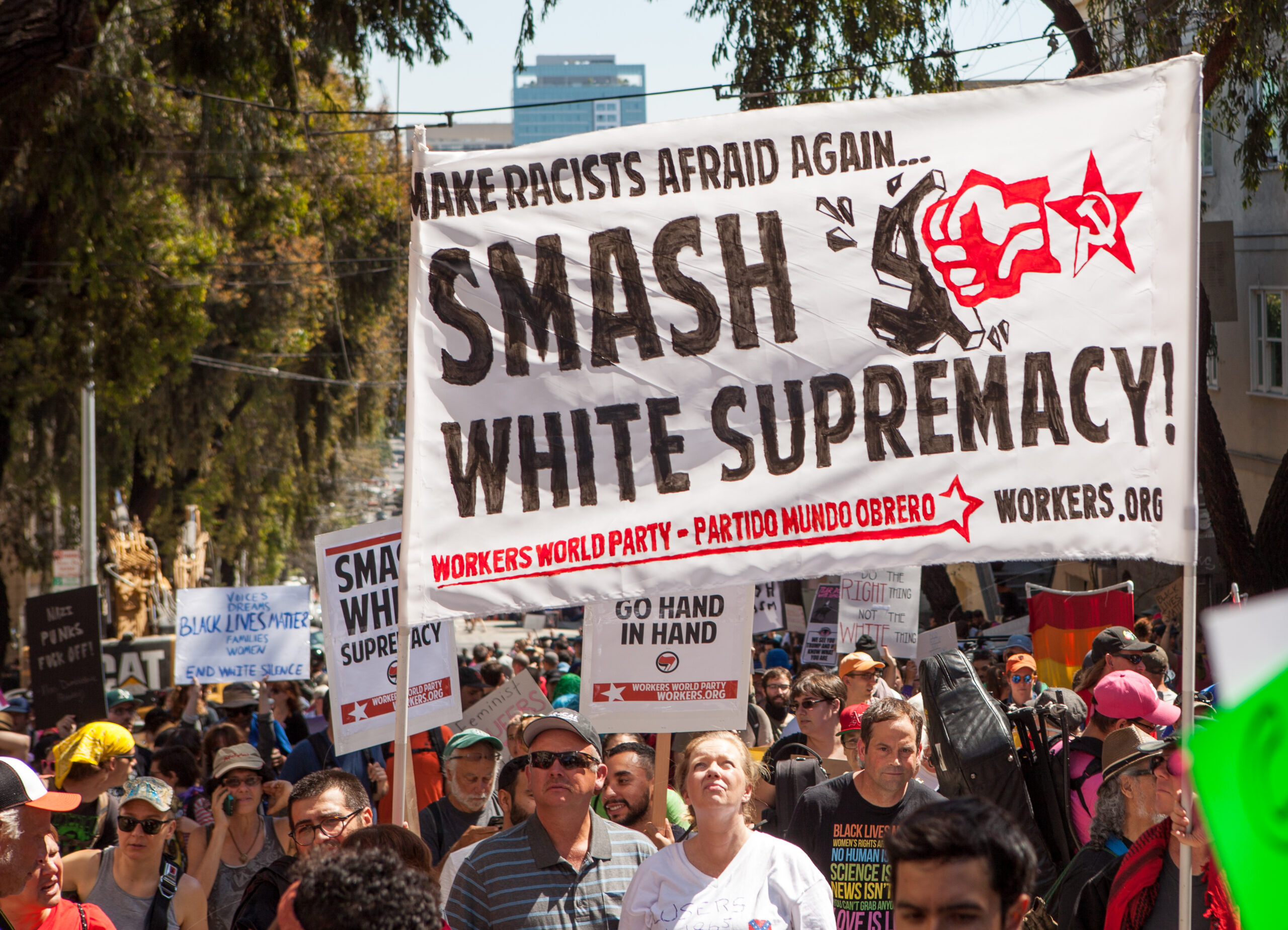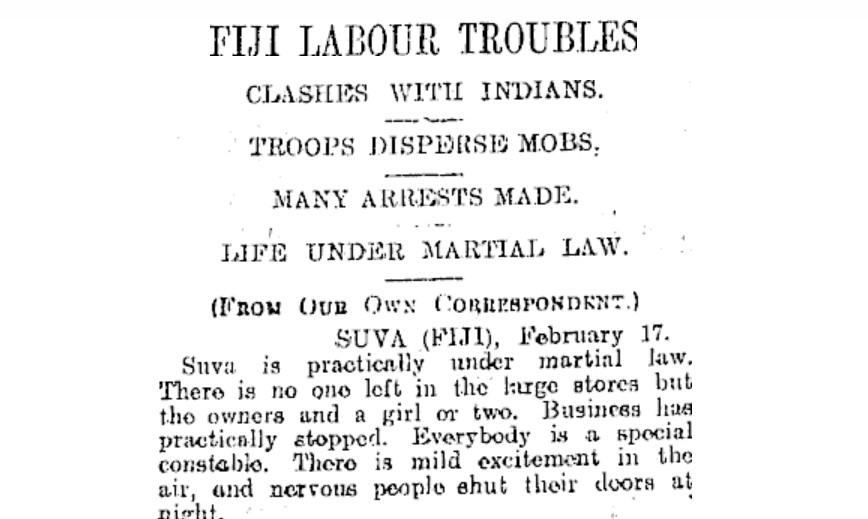Andrew Tait gave this talk to a forum on ‘Neoliberalism, Resistance and the Rise of the Far Right’ on behalf of the International Socialists in Christchurch on 3rd August.
Ki te whare e tu nei, tena koe
Ki te marae e takoto nei, tena koe
Ki te takata whenua, Ngati Wheke, Koukourarata, Onuku, Wairewa, Taumutu, tena koutou, tena koutou, tena koutou katoa.
Kia ora everyone, it’s good to be here in Christchurch/Otautahi. I’d like to acknowledge the Kai Tahu hapu whose rohe we are in, the staunch people of Christchurch, doing it harder than most in this country of hard knocks, and Anti-Racist Action, for hosting this gig.
The idea for this meeting came from notorious neo-Nazi Kyle Chapman – of course not directly, it came from a reaction to his annual march for “whites’ rights”. Anti-Racist Action called a counter-demo and we took a van of people up from Dunedin to help. We saw it as a priority because of the impact of the quake on Christchurch, which has made activism and life in general much harder.
We live in an era of neoliberalism, disaster capitalism – it thrives on shock therapy, on cutbacks, on dislocation and austerity. Disaster zones like quake-shocked Christchurch or hurricane-hit New Orleans are an opportunity for neoliberals because the resilience of communities has been briefly broken. It is an opportunity to reorganise on new lines.
Neoliberalism is a failed doctrine. It used to be common to imagine that it was bad for people, but good for the economy. Since 2008 it is clear it is neither good for people nor the economy. The dislocation and recession caused by neoliberalism can lead in turn to the rise of the far right. But, the space for the far right is limited by “respectable opinion”, of which more later.
In this talk, I want to describe neoliberalism; resistance to it, which so far has been constant, international, heroic and unsuccessful; and the far right – what is it, how much of threat is it, and how best can we oppose it.
What is neoliberalism?
Basically, a belief that markets are self-correcting; that recessions are caused by interference with the natural order. This “interference” can be state ownership of industries, tax or tariffs, unions, environmental laws, affirmative action (equal pay for women or scholarships for minorities), welfare, or any kind of indigenous land ownership or rights.
A pure market exists nowhere (nor could it); but neoliberalism is the dominant everywhere in the world – from China to the USA. We are living in a neoliberal era. In New Zealand, neoliberalism supplanted the old welfare state in 1984. In the UK it came to power in 1979, with Margaret Thatcher, and in the USA in 1980, with Ronald Reagan.
Its theoretical leaders include Milton Friedman and Friedrich Hayek. Both of these economists were Cold Warriors – fervent anti-communists – who believed economic freedom was the essential precondition for political freedom. Hayek saw collectivism of any kind as the “Road to Serfdom”. This did not stop Friedman or Ronald Reagan from advising Pinochet’s murderous military regime in Chile or elsewhere in the third world. Neoliberalism, as Naomi Klein says in her work Shock Doctrine does not rely on free choices, it depends on anti-democratic practices.
But neoliberalism rejuvenated the right and threw the left into confusion. Since the late 1960s, our side, the left, was on the ascendant. Anti-colonial wars had exposed the democratic fraud of old imperial powers like France and Britain, as well as the USA in Vietnam. In the USA, the Civil Rights movement highlighted racist limits on democratic rights. Deep recession after the oil shocks of the 1970s made capitalism look like a system in crisis. Neoliberalism enabled the right to reframe the debate and blame the left, women, workers, and the unemployed and collectivism in general for causing capitalism to fail.
Importantly too though, neoliberalism did appeal to democracy. One pivotal moment was the overthrow of the Stalinist (or state capitalist) regime in Poland by a trade union. A supposed workers’ state was overthrown by a workers movement. Leaders of the union like Lech Walesa were praised to the heavens by Reagan and Thatcher who were smashing unions at home. The collapse of Stalinism in Poland was followed by revolutions throughout the Eastern Bloc. The Russian regime brought in glasnost and perestroika – openness and restructuring – two supposed pillars of neoliberalism everywhere – which quickly turned into pillaging and robbery by Party bureaucrats, the mafia, and US and European corporations.
However, it is important to recognise that the neoliberal era has seen a massive expansion of formal democracy – according to the UN from 44 countries and 38% of the world’s population in 1985 to 82 countries (57%) in 2000. However, although democracy has spread wider, it is also thinner.
One major reason for this is that neoliberalism privatises everything. Under neoliberalism, your vote counts for less than ever because so little of our lives are under collective, democratic control. The stripping of powers from ECan and the Christchurch City Council is a classic example.
It is also a bullshit theory because it is ahistorical. It takes for granted that the market is the natural human order. But capitalism was created in the first place by plundering the commons and is constantly renewed by new campaigns of conquest – from the enclosure of commons in England to slavery in the Americas, the Land Wars in New Zealand, the privatisation of sport, the patenting of plants, and copyright on the internet.
Another reason is that, according to neoliberalism, there is no contradiction between inequality and democracy. So long as we can vote we are the same as Owen Glenn or Graeme Hart. In reality, the only way to win some measure of equality is through organisation … and neoliberalism undercuts both.
Unions have been decimated by globalisation. The workforce available to Western capitalism in the 80s was 500 million; in 2000 it was 1.5 billion. Eastern Europe, Latin America and Asia were opened up to foreign investment. Well-paid, unionised jobs disappeared in the West and reappeared (stripped of pay and conditions) in the new industrial zones of Mexico, Poland, and Korea.
Fee trade agreements were part and parcel of this. In New Zealand, the clothing and automobile industry was destroyed by imports from Asia.
Another, interlocking, reason is a renewed attack on the environment. The oil shocks of the 1970s forced up the price of oil, which made oil fields like the North Sea worth exploiting. North Sea oil then allowed Thatcher to cut out coal and and smash the miners’ union, the backbone of the British trade union movement. Biotechnology has extended the market into new areas of nature just as information technology has colonised into our private lives.
Capitalism is not only a permanent privatisation of the commons, it is also constant competition, continuous war. Neoliberal theory cannot explain this because it has no historical dimension. The end of the Cold War was supposed to be the end of history (and war). But no sooner had US pundit Thomas Friedman formulated “McDonalds Law” that no two states with free markets (and McDonalds) would ever fight, than a toxic combination of IMF policies and nationalism plunged Yugoslavia into tribal genocide. Instead of the authoritarian states of the Cold War era, we have instability and state collapse.
The only area where neoliberalism has succeeded is in generating wealth for the top 1% but even this is destructive. The bloated swelling of the wealth of the ultra-rich has led to the “financialisation” of the economy – for every dollar of world GDP there are 70 imaginary dollars. We are living in a debt bubble.
Neoliberalism is a flawed theory and a failed system. Why is it dominant?
Resistance
It is impossible to pay enough tribute to the myriad forms of resistance, the many, many movements against neoliberalism, or to the activists who have kept the faith and kept fighting through some dark days, when “greed was good”, unions were dinosaurs and communities torn apart because “there was no alternative”. I’m honoured to be on this panel with Paul Piesse, who I’ve known of as a staunch fighter for workers’ rights.
I don’t think there was any lack of fighting spirit in the working class, or the women’s liberation movement or indigenous movements in the 1980s and 1990s, and I don’t want to forget or downplay victories like the Waitangi settlements and equal marriage. Every battle we fight leaves a legacy for the future. But, our side has suffered heaps of defeats and the distribution of wealth between working people and capital is the fundamental measure of that.
What went wrong? I think we have been losing because of a combination of objective and subjective factors – global changes have weakened our collective power (these are the objective factors); and left-wing ideas have been in disarray (this is the subjective factor).
Its easy to blame the Lange Labour government for 1984 – when elected on a left-wing platform, Lange and his mates ripped the welfare state to pieces; since then neoliberalism has ruled in NZ (sometimes harsher, sometimes softer, but always the same theory). It is easy to blame the union movement for failing to fight back, and to forget the global context. Competition from industrialising countries and new technologies gave the ruling class in New Zealand the upper hand in every battle.
That’s not to say Labour or the unions had no alternative. A general strike against the Employment Contracts Act could have brought down the National Government and weakened the neoliberal project in NZ beyond recognition. But it is important to remember the context when we criticise, which I am now going to do.
Resistance was fragmented. Before the 1980s, the old Communist Parties and the left of the Labour Parties, which led the militant wing of the working class, were “workerist” – suspicious of women’s rights, land rights, environmentalism etc. These things would be fixed by socialism (meaning Stalinist regimes, what we call state capitalism). By the 60s and 70s, it was clear these regimes were failing these democratic tests. Radicals in the “new social movements” reacted against this crude Marxism by stressing differences, specific struggles, not a collective struggle. The collapse of the USSR accelerated this process.
In New Zealand, for example, (roughly speaking) Maori looked first to the unions to win their rights, then to pan-Maori organisations when they felt the unions were too Pakeha-focused, then to iwi organisations to stake claims for Waitangi settlements. Identity politics fragmented the movement.
On the other hand, neoliberalism provided a strong, coherent ideology to justify cuts to health, education, welfare and wages. It promised “long term gain for short term pain” but crucially avoided any actual vote. Our arguments were as fragmented as our forces.
I was from Invercargill, a working class, Labour Party city that was gutted. I went to university during the big fee rises and was on numerous occupations at Otago and Massey. Some of my best memories are from that struggle but we were losing. The turning point for me was the Battle of Seattle, where the “movement of the movements” cohered into a mass presence against “globalisation”, or even against capitalism. The fragments were reassembled.
But no sooner were we united against globalisation and multinationals than 9/11 occurred and the nation state – in this case the world hegemon, the USA – forced itself back onto the scene. The anti-war movement on February 15 achieved the biggest demo in human history but dwindled for a decade. Then in 2011, the Arab Spring and Occupy began. We have entered a new era.
The far right
Unfortunately, so long as war, racism and sexism are with us, so is the far right.
There are three misconceptions I want to deal with here – 1) the idea that publicity just encourages them; 2) the idea that they are retro-geeks that the left should not worry about and 3) that Kyle and his thugs are the biggest threat to democracy and the left.
The first perspective belongs to liberals. They put their faith in police, parliament and the press because (generally) they are afraid of the “great unwashed”. Skinheads are the same for them as Black Power or the mob. This is a minority, but it constitutes “respectable opinion”.
The second perspective belongs more to academic leftists and they are right in that RWR is a retro-geek parade. They aren’t trying to make sense of the present in particular, so much as hark back to some kind of cross between the welfare state in New Zealand and the Third Reich. But just because these racists are retro does not mean racism is not as serious a threat to working class organisation as ever. Between Chapman and Michael Laws, there is a big audience.
The third group want to boil socialism down into the mirror image of fascism, when it is not. The question “what is to be done” is a difficult one, and it crops up again and again in socialist thinking. Whatever the answer is, it is never just go out and beat someone up!
We argue the best way to oppose the far right is to combine appeals to respectable opinion with mass mobilisations of workers and the oppressed to march and confront them, denying the far right the satisfaction they get from feeling like they can intimidate and harass by marching unopposed. They are a threat that cannot be ignored, and need confronted when they appear as a challenge.









